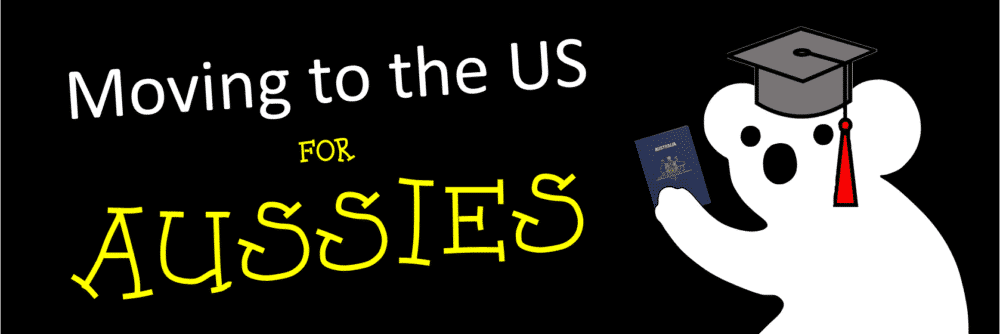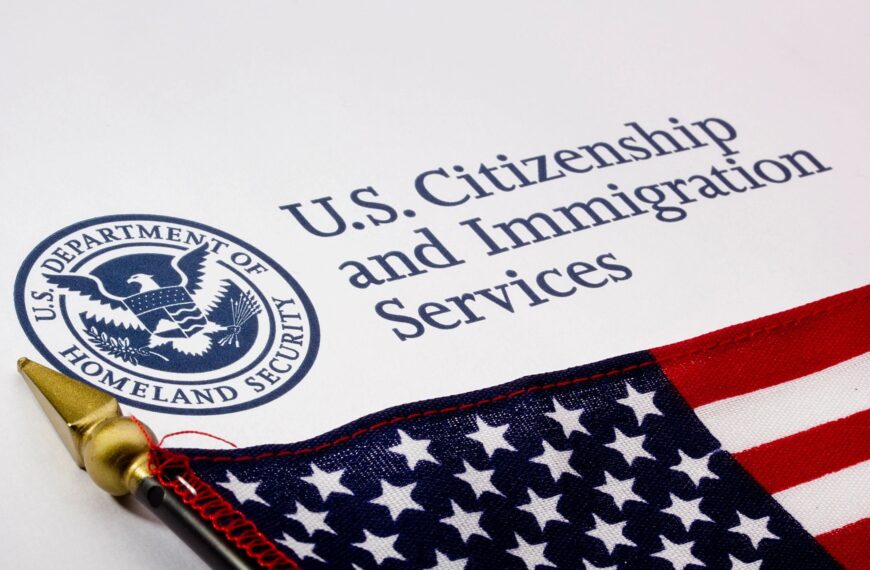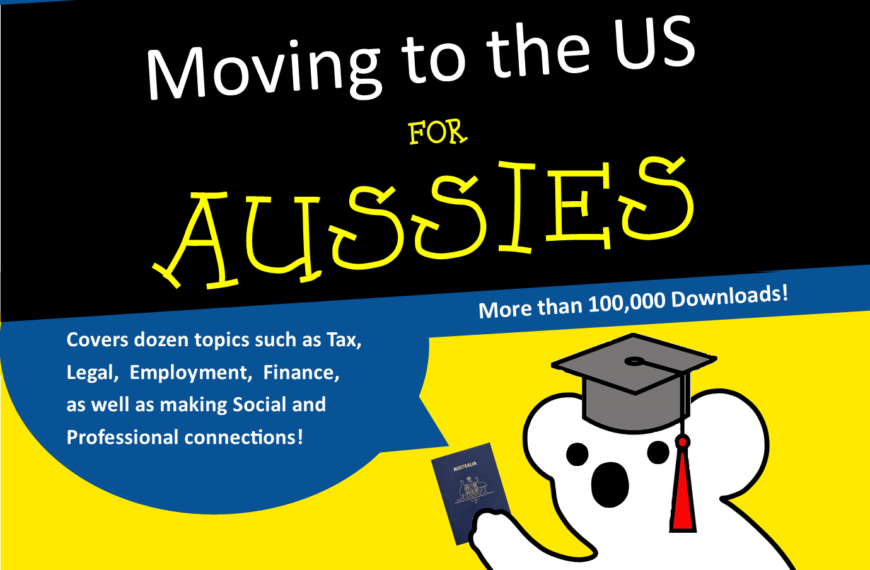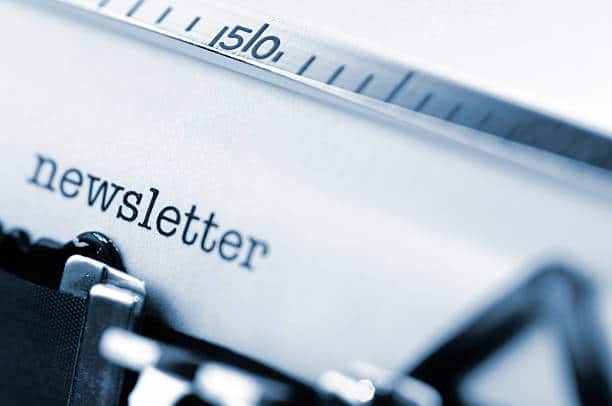New York in the Rear View Mirror: Chapter 20

New York in the Rear View Mirror
We have now arrived at the final chapter of our book. It is fitting that the end of our journey would discuss when is the best time to put New York (or any other U.S. city) in the rear view mirror, and head back to Australia.
This subject matter of this chapter was always going to deal with what can be an agonizing decision for many Australian expats. However with the COVID-19 Global Pandemic, many Australians’ decisions whether to stay, or to go, is being fueled by fear, rather than logic.
This chapter is not intended to give specific tax or legal advice. Every situation is different, so consult with your financial advisor or Immigration attorney for professional advice specific to your circumstances.
The Pre COVID-19 Mindset
It has been said that when you stop feeling compassion for the Homeless, it is time to leave New York City. The daily pressures and pace of big cities in the U.S. can at times test our compassion as human beings. So when you see a (truly) homeless person, do you think “There but for the Grace of God go I”, or do you simply go back to reading your social media feed without a second thought?
Prior to COVID-19, the decision process for most Australians was based on two factors: Finances and Family. New York is expensive, so without a well paying job, or significant savings to draw down, Australians return home within a few months.
For those who do find their dream job and settle into city living, starting a family in the U.S. can be the catalyst for retuning to Australia. Often Australians question whether they want their children to grow up in the U.S. education system, or Australia’s. If they go to High School in the U.S., do they go to University in Australia?
Aging parents can also pull Australians home, as can something as simple as missing friends and family.
At the proverbial end of the day, any of the above reasons to return home are decisions that should been carefully weighed, considering all of the pros and cons. For those Australians who do make the decision to return home without considering all of the pros and cons, they all share one thing in common: Regret.
Placing your family’s needs over your career goals is a decision that you can live with. However, putting New York in the rear view mirror can leave many Australian repatriates feeling remorse if they gave up their New York dream too early.
A Challenging Career Step for Many
Unless an intercompany transfer back to Australia, and/or a way to retain your U.S. salary is part of your repatriation strategy, be prepared to take a significant salary hit. Many “Re-pats” are surprised by the significantly lower salaries being offered by Australian companies for even the most senior of roles. That is until they remember that one of the reasons they left Australia for the U.S. was for a better wage!
Readjusting to working in smaller, less structured organizations can also be a challenge. Actions that would have you called before H.R., or a DCM (Don’t Come Monday), often barely raise an eyebrow in Australia. Meetings where your coworkers openly disagree with decisions of their manager, albeit refreshing, will take some getting used to at your new company.
If you do work within the structure of a Global organization, the familiar expectation to work late will still exist. However at 5:00PM Friday, also expect to see a queue to get on the lifts to exit the building. “Beer Time” is culturally engrained into the Australian work culture, and besides, it’s 1:00AM/3:00AM in New York and everyone there went home hours ago!
Unemployment can be the Catalyst.
The reality of COVID-19 is that millions of U.S. workers are being terminated or furloughed. If you are on an E-3 visa, you have been terminated, and you do not have any new job prospects, heading back to Australia may be your only option.
We have posted guidance in this article E-3 Visas and Navigating the Impact or COVID-19 that addresses your immigration options to stay in the U.S.. Not every solution will resonate with every reader, but if the option to legally stay in the U.S. up to eight addition months has some appeal, the article will explain some Immigration strategies being leveraged.
Where does The E-3 Hopeful Stand?
In past chapters we have discussed the Australian hoping to find work on an E-3 visa; aka the E-3 Hopeful. Referencing the above article, USCIS appointments in Australia are now pushed out to July (as of 4/6/2020).
This may be a bad news / good news scenario for Australians who received a job offer, but cannot get a Consular appointment for some months. Good news in that Employers may now be open to waiting to onboard any new employees. However the news is not good if your I-94 stamp says that you cannot wait.
In the Financial Markets, timing is key, and the most difficult or all factors to predict. Predicting when the economy will return to normal, and employers will begin hiring may be an impossible task. Like many Investors holding onto a long portfolio, an E-3 Hopeful may not have the financial resources to outlast out an economic downturn.

Returning home is not as easy as it seems.
Booking a one way plane ticket to Australia and shipping your prized possessions home may seem stressful, but not an unsurmountable challenge. At the time this chapter was published, there were regular flights to Australian out of LAX and SFA. However, shipping possessions is becoming more challenging due to lengthy delays.
If you have a pet, you may be devastated to learn that one of your family members is going to have to stay behind. Melbourne is the only quarantine center, and there are no direct flights out of the U.S. to Melbourne.
The Australian Embassy in DC website has published a COVID19: Stay Informed page that discusses many common questions for those Australians who are returning home, including quarantine regulations. Notwithstanding the Australian Government’s side of the equation, you also have to consider unwinding your U.S. affairs.
Finding an apartment, opening bank accounts, utilities and establishing credit in the U.S. are all challenges for Australians moving to the U.S.. Similarly, unwinding your taxation and financial footprint in the U.S. is going to be a challenge. Utility bills, phone, internet, gym memberships, subscriptions all need to be fully paid and terminated. Leaving just one auto payment active, or unpaid taxes or outstanding IRS filings when you leave the U.S. can create issues.
When you get to Australia, finding out that you are not an Australian resident, comes as the first shock. How the ATO treats your taxes (assuming you have work) until you reestablish your Australian residency will need some guidance. If you are unemployed, you will not have access to social services including Medicare, and you will not be able to vote.
Expats face social challenges until they establish their circles of friends in their new country. Similarly, when Australians repatriate, they are no longer special or have an interesting accent. They are just another Aussie in the Pub, and somewhat annoying to their friends with repetitive stories of life in the Big Apple.

Re-adjusting to the Australian work culture can be a challenge. For those who have grown accustomed to the fast pace of New York, finding that your daily work is completed before lunch is not uncommon.
Your boss may be impressed by your efficiency and constantly seeking out new tasks, but the lack of opportunity for career growth may have you questioning why you left New York in the first place.
The COVID-19 Effect
From The Australian Consulate General New York Website:
“Australia is currently NOT allowing the entry of people who are not citizens, permanent residents or their families. All travelers arriving in to Australia from overseas will go into monitored quarantine in hotels or other designated facilities for 14 days, before they can go home.
Australians who are overseas and want to return to Australia are advised to do so as soon as possible by commercial means. Overseas travel is becoming more complex and difficult.”
Reading this, it would not be surprising that many Australians are rushing to book the next fight back to Oz. But before you make a long term solution for what may be a short term problem, give some consideration to the following:
Firstly, am I going to get sick from exposure to a passenger with whom I am about to spend 14-20 hours travelling in a confined space? Covid-19 is highly infectious and unless you have a swag of N-95 masks and Purell, you may catch the very virus you are attempting to escape!
Secondly, when I arrive back in Australia, where will I be sent for quarantine? Stories are emerging that some of the hotels and quarantine centers are dodgy, to say the least. Being stuck in a room smaller than your NYC apartment for 14 days may not be the worst-case scenario; being sick with COVID-19 in a room smaller than your NYC apartment for three weeks or more!
Further, if you do live in NYC and you get sick from COVID-19, NYC is providing free health care – regardless of immigration status.
The Final Decision.
Making the move back to Australia should be a decision based on logic, not fear. However, given the time constraint of available airline flights, if you are seriously considering returning, the window of opportunity is closing.
If you are one of the growing number of expats who are simply packing a bag and leaving New York in the rearview mirror, along with financial obligations, you may face an entirely new set of challenges to overcome if you decide to return to the United States.
Click here to read “Moving to the US for Aussies” from the beginning.
Before you send money Overseas!
Use this Currency Converter to gauge how much money you could save over your existing FOREX service by accessing The Australian Community’s Preferred OFX Rate.
Currencies can fluctuate by the minute. This Converter is indicative of the Preferred OFX Rate at this time.
However, once you register and access our Preferred OFX Rate, you will see the current converted rate, and the converted amount before making your transfer.
About The Australian Community
Founded in 2011, we connect more Australians in America.
If you are a professional Australian taking your career to the next level, or the U.S. is the next step in your company’s global expansion, we can connect you to all of the resources you need for success in America.
Did you find this article helpful? Make a Donation!
The Australian Community is a 501(c)(3) organization, and all donations are fully tax-deductible under the IRS Code.








